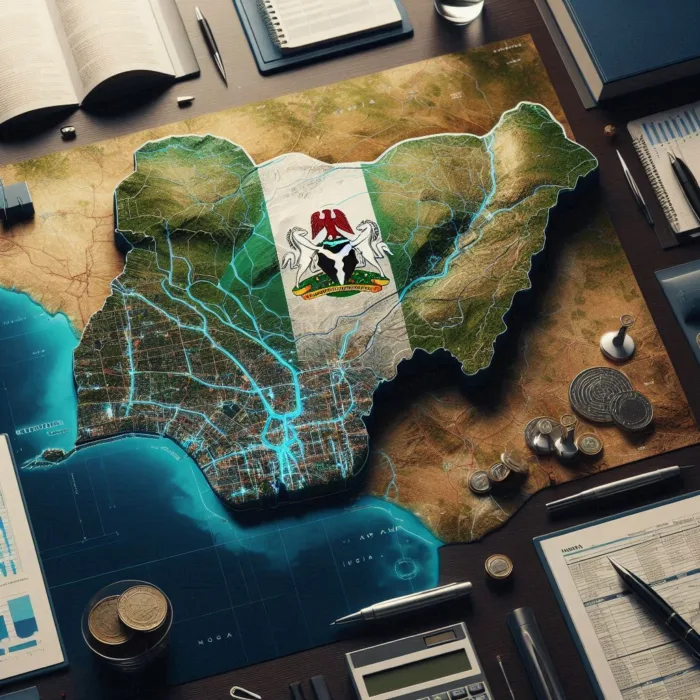Nigeria, as one of Africa’s prominent emerging economies, has undergone significant transformations in recent decades. In this analysis, we will explore key aspects of its economy, from Gross Domestic Product (GDP) to industrial diversification and the challenges it faces.

Gross Domestic Product (GDP)
Nigeria’s GDP is impressive both nominally and in terms of purchasing power parity (PPP). I. However, the economy remains highly dependent on oil and its derivatives. Economic diversification is crucial to reduce this vulnerability. While investments have been made in sectors like petrochemicals, automobile manufacturing, and infrastructure, there is still much progress to be made.
| Indicator | Value (2024) |
|---|---|
| Population | 230,104,632 |
| GDP (Nominal) | $252.73 billion |
| GDP (PPP) | $1.44 trillion |
| GDP per Capita (Nominal) | $1,109 |
| GDP per Capita (PPP) | $6,320 |
| GDP by Sector (2020) | Agriculture: 21.96%<br>Industry: 23.65%<br>Services: 54.39% |
| Inflation (CPI) | 33.20% |
| Population below Poverty Line | 38.9% |
| Gini Coefficient | 35.1 (medium) |
| Human Development Index (HDI) | 0.548 (low) |
| Labor Force | 100,571,000 |
| Unemployment | 32.1% (Q1 2021) |
| Main Industries | Cement, oil refining, agrobusiness, construction, food processing, textiles, pharmaceuticals, information technology, automobile manufacturing, and more |
| Exports | $42.4 billion (2022) |
| Main Export Partners | India, Spain, China, Netherlands, South Africa, France |
| Imports | $52 billion (2022) |
| Main Import Partners | China, Netherlands, United States, India, Belgium |
| FDI Stock | $116.9 billion (31 Dec 2017) |
| External Debt | $85.9 billion (31 Dec 2020) |
| Government Debt | 36.6% of GDP (2021 est.) |
Nigeria. Industrial Diversification
Nigeria has experienced some diversification in recent years. Beyond oil, other sectors such as agriculture, mining, construction, and telecommunications have developed. However, oil dependence remains a challenge. Investment in manufacturing and technology is essential for further diversification.
Foreign Trade
Nigerian exports include crude oil, natural gas, agricultural products, and minerals. The United States, Brazil, India, Spain, and France are major destinations for these exports. Imports primarily come from China, the Netherlands, the United States, the United Kingdom, South Korea, France, and Germany. Diversifying trade partners is crucial for economic stability.
Social and Economic Challenges
Despite its economic wealth, Nigeria faces significant challenges:
- Human Development Index (HDI): Nigeria’s HDI stands at 0.535, reflecting inequalities in health, education, and income.
- Poverty: Approximately 40% of the population lives below the poverty line.
- Labor Force: While extensive, it requires improvements in training and sustainable employment.
Regional Organizations
Nigeria actively participates in the Economic Community of West African States (ECOWAS). This regional organization promotes economic cooperation and integration among member countries. ECOWAS plays a crucial role in regional trade and mobility.
In summary, Nigeria’s economy is globally significant. Diversification, infrastructure investment, and addressing social challenges are essential for sustainable growth. As Nigeria progresses, its economy will continue to be a key driver for African development.

Team ProdAfrica
team@prodafrica.com